Many want out as Shanghai recovers from lockdown
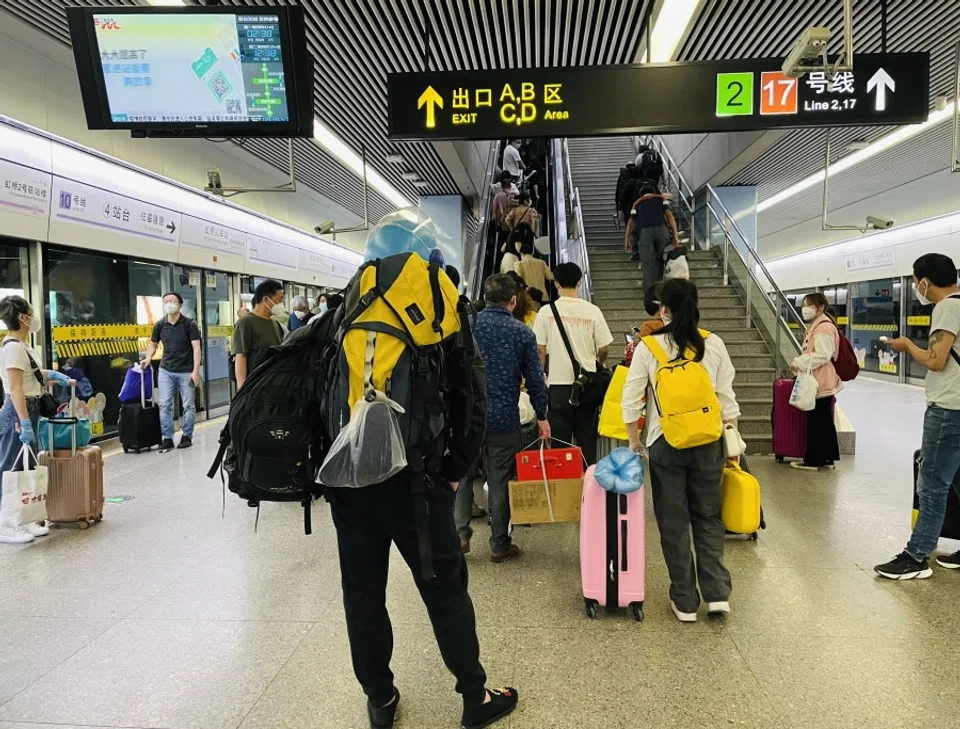
At the waiting hall of Shanghai Hongqiao railway station, 30-year-old Wu Yuexia (pseudonym) asked me, "Can you help me carry my suitcase to the ticket gate?"
She had her suitcase in one hand, a plastic bag in another, and a large woven bag at her feet. After going through the security check with all her bags, she was flushed and exhausted, with strands of her hair sticking to her sweaty forehead.
Wu was taking the 5pm train to Henan's Shangqiu. But even before noon, there was already a long line at the ticket gate. Even with her ticket in hand, she was worried about missing the train and wanted to join the queue as early as possible. She said, "I don't want to stay in Shanghai for another day."
... some are utterly disappointed in Shanghai and vow never to return again, while others are determined to stay, hoping to find new opportunities after the lockdown.
Escape from Shanghai
When the city lifted its lockdown on 1 June, many "Shanghai drifters" or long-time residents tried to leave. Among them were blue-collar workers who had lost their jobs due to the lockdown and recent graduates who could not find a job in Shanghai.
After the latest lockdown measures, some are utterly disappointed in Shanghai and vow never to return again, while others are determined to stay, hoping to find new opportunities after the lockdown.
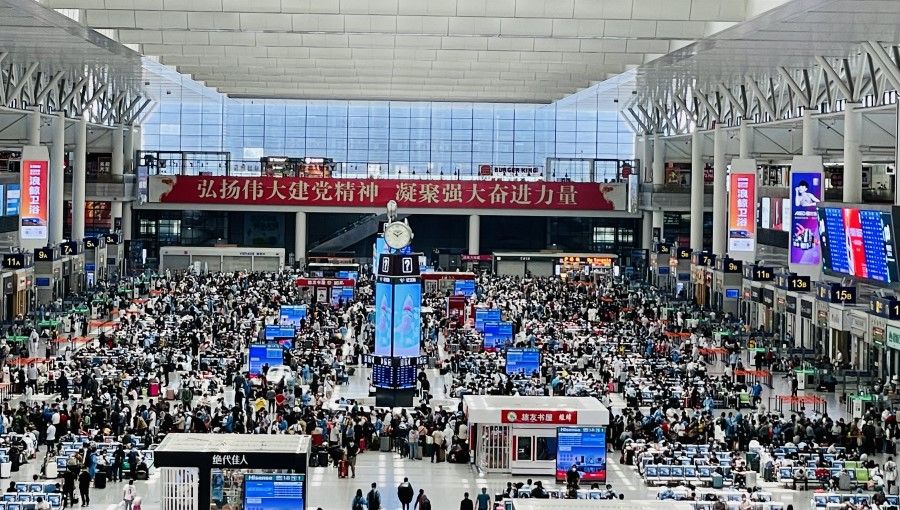
The queue to enter the Hongqiao railway station goes on for hundreds of metres on the west side of the station. Checkpoints along the way screen for passengers' green health code, negative PCR test and ART results taken within the last 48 and 24 hours respectively, and train tickets.
Passengers who fail to meet the requirements are turned away. The Paper reported that an average of 2,000 passengers have been stranded at Hongqiao railway station every day over the past two weeks, with the highest daily number hitting 3,400 people.
Only after the passengers have entered the waiting area are they able to rest. Even then, most of the seats are already occupied, and they can only sit on their luggage or on the floor.
Strict quarantine measures another obstacle
Sharing a sleeping bag, 56-year-old Liu Quanmin (pseudonym) and his wife sat on the ground surrounded by their luggage "fortress". A day before Shanghai's lockdown ended and when the subway was still shut, the couple decided to ride 25 kilometres on a shared bicycle from Baoshan District to the railway station.
To transport their belongings, the couple turned transparent adhesive tape into shoulder straps and cardboard boxes into backpacks. They even sewed a pair of long johns into a tote bag to carry the rice, noodles and oil given out by their residential community. After cycling for 30 minutes, they managed to get on a taxi for the rest of the way to the railway station.
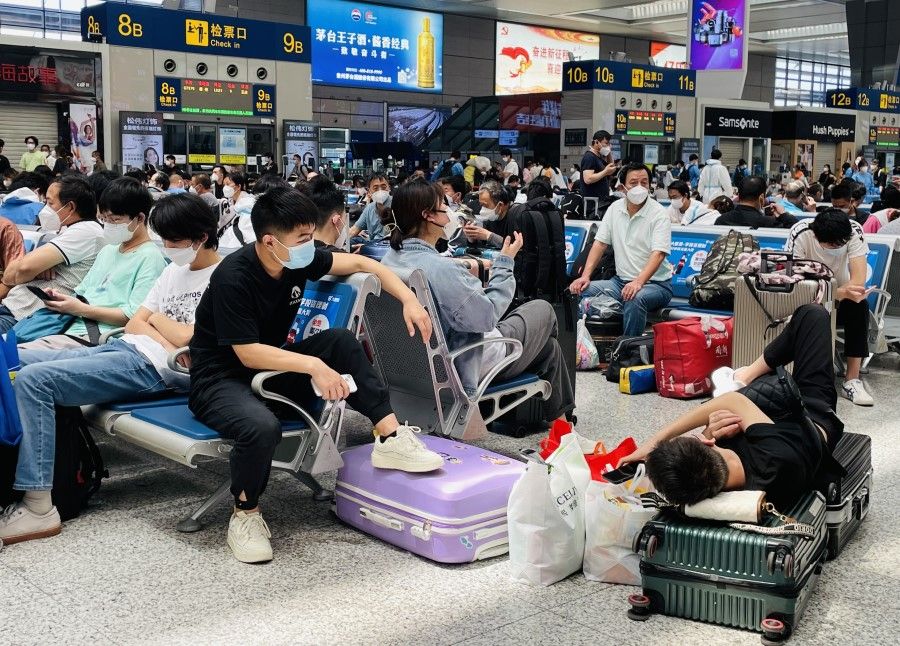
Liu told Zaobao that he had worked for ten years as a welder in Wuxi, Jiangsu province. In March this year, he came to Shanghai to work at a stadium construction site after a hometown friend told him about the job opportunity. However, after the Covid-19 outbreak escalated, the stadium was turned into a makeshift hospital. Thus, he was at the construction site for barely a month when the job ceased.
After toughing out the lockdown, Liu decided to return to his hometown Zhoukou in Henan province. He would return to Wuxi once his 14-day travel history no longer reflects his stay in Shanghai.
After Shanghai's lockdown was lifted, 64 outgoing passenger trains across the city's three railway stations resumed operations. While railway tickets are no longer an issue, strict quarantine policies are becoming another obstacle.
Wu said that as of two weeks ago, her hometown in Shangqiu still required Shanghai returnees to complete a 14-day quarantine in a designated facility, which would cost 3,000 RMB (US$450). While the quarantine period has been shortened to seven days, she would still feel the pinch. She lamented, "When I was in Shanghai, I didn't even earn a lot. Now that I'm returning home, I'd still have to pay for my own quarantine expenses? That's just too unreasonable."
Wu revealed the contents of her plastic bag: an electric kettle, instant noodles, vermicelli, and even some garlic, much of which she had stocked up on through group-buying services when Shanghai first went into lockdown. She planned to consume these supplies during her quarantine to save money on food.
The pandemic has not just affected the livelihoods of workers, but also the employment outlook of fresh graduates.
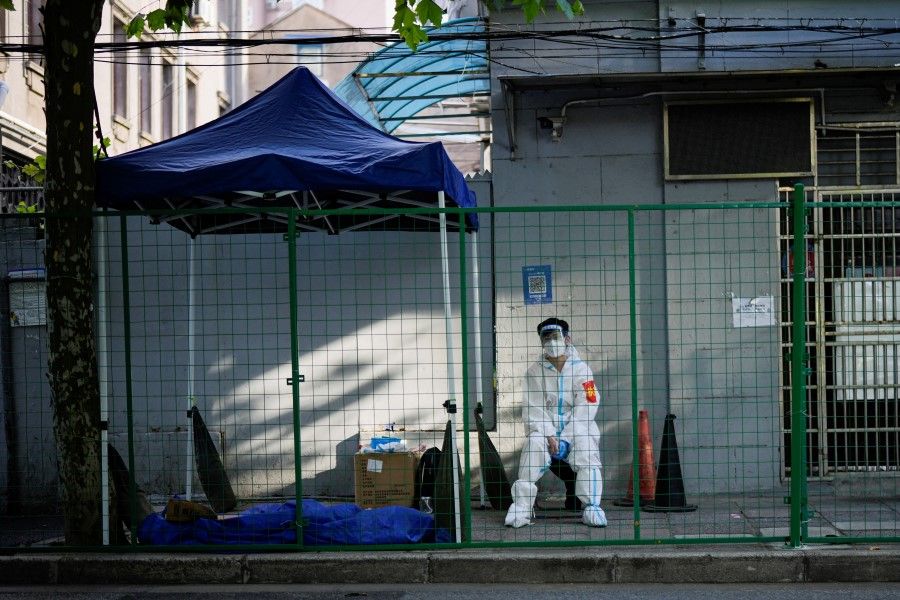
After doing her seven-day quarantine at a facility, Wu would still have to self-quarantine at home for another seven days, during which there would be a prominent notice stuck on her door. Wu said, "The whole compound will know that I came back from Shanghai, and I'll surely be scolded for 'contaminating' the area."
But Wu had actually been more worried about not making ends meet during the lockdown. In February, she landed a job as a hotel cashier but this gig was interrupted after 20 days due to the lockdown. She was only fully paid her 2,500 RMB salary a day before her return to her hometown. Meanwhile, her rent and the group purchasing bill had already cost her 4,000 RMB.
Wu recalled that during the first month of lockdown, she could not stomach the exorbitant food prices so she ate only plain noodles and chilli mixed with rice and would sometimes be dizzy from hunger.
She said, "I came to Shanghai to work to help my family repay their housing loan. But I ended up not earning a single cent and having to fork out quite a lot of money instead. I really regret coming to Shanghai - I will never come back again."
Job hunt of new graduates affected
The pandemic has not just affected the livelihoods of workers, but also the employment outlook of fresh graduates. Some university students from out of town who had planned to stay in Shanghai are now looking for other alternatives.
Fourth-year student Wang Jing's semester ended two weeks earlier due to the pandemic. Her journey home was not too much of a challenge as the school had arranged transport to the train station. But her greatest regret remains not being able to stay a while in Shanghai to see the sights before returning home.
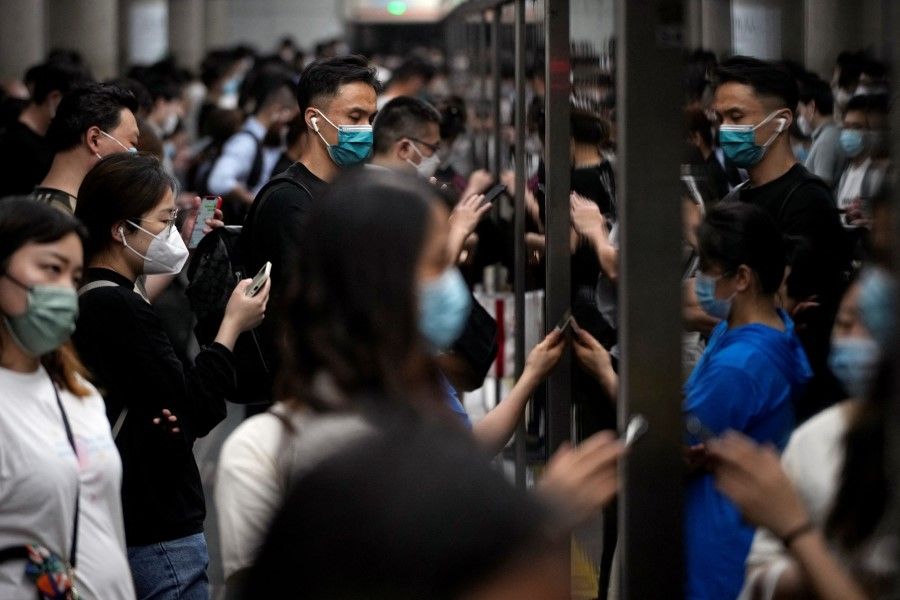
The pandemic had complicated the 22-year-old Wang's job search. She said that the job market is bad this year and many companies are making retrenchments. Those that are hiring can only offer mediocre salaries. She would have preferred to stay on in Shanghai to work but could not find anything suitable as employment opportunities were scarce. She eventually found a job at a Shanghainese company in Qingdao, Shandong province.
Meanwhile, Wang's university has been shut since 12 March. She sounded resigned as she spoke of the lockdown, saying, "It feels like Shanghai missed several opportunities to control the pandemic, and in the end, everybody suffered. This has dented the good impression I always had of Shanghai. But I still hope that it will recover quickly and that I'll have a chance to come back someday and have fun."
'Involution' ahead as jobseekers from elite universities spike
Early this year, 24-year-old Li Tai (pseudonym) left his job in Shenzhen and in early March came to Shanghai for an interview. His friends told him to be careful of the pandemic situation in Shanghai, but up until early April, he believed that Shanghai would not go into lockdown.
He was ill-prepared and did not have enough supplies in the initial part of the lockdown, and could only have instant noodles and eggs for nearly every meal. He said wryly, "Now, I feel like vomiting every time I smell spicy or braised beef noodles."
"You see top students from Nankai, Tsinghua and Renmin universities looking for jobs, and you know that things are getting more and more involuted." - Li Tai, young graduate looking for a job
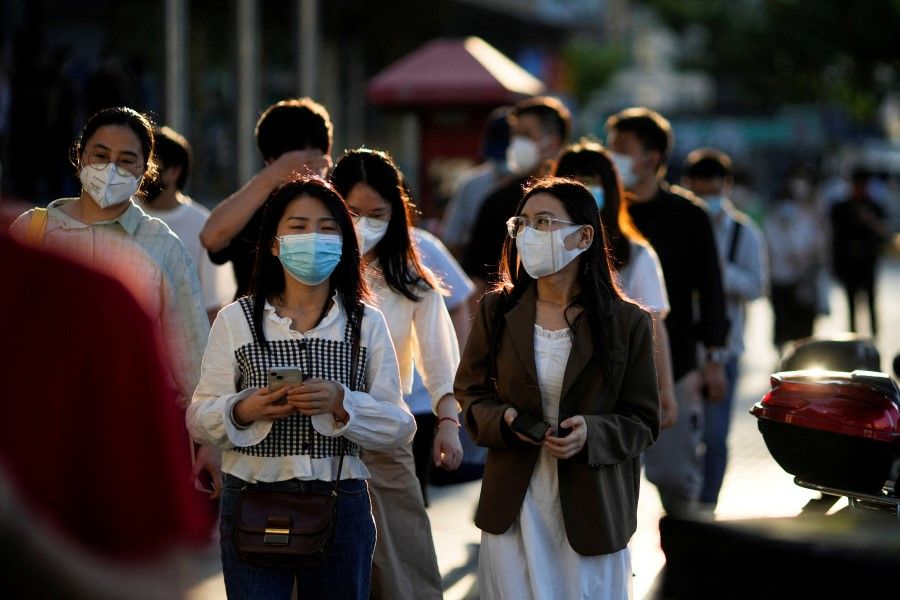
Li observed that over the past two months of lockdown, many more elite university graduates have joined the Shanghai jobseekers group that he is in. Referring to the already intense competition that has just been ramped up a notch, he said, "You see top students from Nankai, Tsinghua and Renmin universities looking for jobs, and you know that things are getting more and more involuted."
Even though his family has urged him to get a job in his hometown in Yunnan, Li is staying in Shanghai, at least for a few more months. While the pandemic has impacted the job market everywhere, there are still relatively more opportunities in Shanghai, and he wants to try his luck in the city.
Li said, "If I want to settle down in Shanghai, I have to work hard, otherwise my past few months of suffering would have all been for nothing!"
